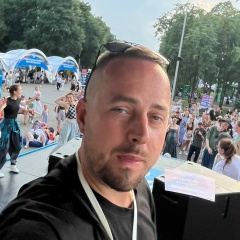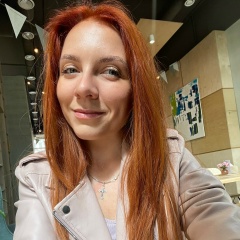И все-таки для меня 11 сентября это прежде всего Сантьяго, а не Нью-Йорк, 1973, а не 2001, хотя до сих пор помню как после школы пошел в канцелярский за резаком, а вернулся в мир, где в роли радио Армагеддон выступал прямой эфир СNN. И все-таки 1973 год...
"Уйти в последний путь в окружении скорбящих друзей, быть похороненным в гробу, да и просто быть похороненным — в Сантьяго это роскошь. В этом городе уже две недели убивают в домах, на улицах, в университетах: изувеченные тела в моргах складывают штабелями. Идущие за гробом знают, что их жизнь ничего не стоит, что в любой миг их могут скосить автоматными очередями солдаты, шпалерами выстроившиеся вдоль улиц, по которым движется кортеж.
В Сантьяго могут убить за длинные волосы или мини-юбку. Но исходя из какой-то хитрой корысти — не из почтения же к Нобелевской премии покойного — убийцы дозволили 26 сентября 1973 года почти по-людски похоронить великого поэта-коммуниста Пабло Неруду. Его дом разгромлен, его библиотека сожжена, но он умер, хотя и под дулами автоматов, в больнице — за две недели Сантьяго уже забыл, что люди иногда умирают своей смертью. Неруда на 12 дней пережил друга, президента-социалиста Сальвадора Альенде. Еще недавно Альенде, интеллигент и гран-месье, врач, бонвиван, масон, чадолюбивый семьянин и красноречивый проповедник ненасильственной революции, непреклонно отвечал «нет» улице, скандировавшей: «Оружия! Оружия!». По его вине его самых преданных сторонников убивали почти безоружными, но вину он искупил, умерев в неравном, пятичасовом бою, с автоматом в руках. Семья пыталась скрыть от умирающего Неруды его гибель.
В прошлой жизни хоронить Неруду вышли бы десятки, сотни тысяч. Его имя — синоним Чили. Но по нынешним временам и сотня, что идет за гробом коммуниста, — это немыслимо много. Они еще самоубийственно отчаянно и отчаянно нестройно затягивают «Интернационал». Матерые мачо-латинос срывающимися голосами рыдают: «Здесь!», откликаясь на женский голос, который раз за разом выкрикивает: «Товарищ Неруда!».
И еще, и еще.
«Товарищ Виктор Хара!» — «Здесь!»
«Товарищ Сальвадор Альенде!» — «Здесь!»
Это уже не похороны, это первый протест против хунты.
И это — подвиг Брюно Мюэля и Тео Робише: один лишь «Чилийский сентябрь» (1973) — уникальный документ и шедевр документального киноискусства — сохранил образы этого дня. Домой в тот день участники кортежа вернулись: солдаты не стреляли — потому, что к кортежу присоединились иностранные дипломаты (посольства всех приличных стран в Сантьяго забиты беженцами, а под окнами посольств лежат трупы тех, кто не успел добежать), и потому, что идет съемка."
Михаил Трофименков. "Кинотеатр военных действий".
"Уйти в последний путь в окружении скорбящих друзей, быть похороненным в гробу, да и просто быть похороненным — в Сантьяго это роскошь. В этом городе уже две недели убивают в домах, на улицах, в университетах: изувеченные тела в моргах складывают штабелями. Идущие за гробом знают, что их жизнь ничего не стоит, что в любой миг их могут скосить автоматными очередями солдаты, шпалерами выстроившиеся вдоль улиц, по которым движется кортеж.
В Сантьяго могут убить за длинные волосы или мини-юбку. Но исходя из какой-то хитрой корысти — не из почтения же к Нобелевской премии покойного — убийцы дозволили 26 сентября 1973 года почти по-людски похоронить великого поэта-коммуниста Пабло Неруду. Его дом разгромлен, его библиотека сожжена, но он умер, хотя и под дулами автоматов, в больнице — за две недели Сантьяго уже забыл, что люди иногда умирают своей смертью. Неруда на 12 дней пережил друга, президента-социалиста Сальвадора Альенде. Еще недавно Альенде, интеллигент и гран-месье, врач, бонвиван, масон, чадолюбивый семьянин и красноречивый проповедник ненасильственной революции, непреклонно отвечал «нет» улице, скандировавшей: «Оружия! Оружия!». По его вине его самых преданных сторонников убивали почти безоружными, но вину он искупил, умерев в неравном, пятичасовом бою, с автоматом в руках. Семья пыталась скрыть от умирающего Неруды его гибель.
В прошлой жизни хоронить Неруду вышли бы десятки, сотни тысяч. Его имя — синоним Чили. Но по нынешним временам и сотня, что идет за гробом коммуниста, — это немыслимо много. Они еще самоубийственно отчаянно и отчаянно нестройно затягивают «Интернационал». Матерые мачо-латинос срывающимися голосами рыдают: «Здесь!», откликаясь на женский голос, который раз за разом выкрикивает: «Товарищ Неруда!».
И еще, и еще.
«Товарищ Виктор Хара!» — «Здесь!»
«Товарищ Сальвадор Альенде!» — «Здесь!»
Это уже не похороны, это первый протест против хунты.
И это — подвиг Брюно Мюэля и Тео Робише: один лишь «Чилийский сентябрь» (1973) — уникальный документ и шедевр документального киноискусства — сохранил образы этого дня. Домой в тот день участники кортежа вернулись: солдаты не стреляли — потому, что к кортежу присоединились иностранные дипломаты (посольства всех приличных стран в Сантьяго забиты беженцами, а под окнами посольств лежат трупы тех, кто не успел добежать), и потому, что идет съемка."
Михаил Трофименков. "Кинотеатр военных действий".
And yet for me on September 11th this is primarily Santiago, not New York, 1973, and not 2001, although I still remember how after school I went to the clerical office for the cutter and returned to the world where Armageddon acted as a radio live broadcast of CNN. And still 1973 ...
“To go on a last journey surrounded by grieving friends, to be buried in a coffin, and just to be buried - in Santiago is a luxury. In this city, they have been killing in houses, streets, and universities for two weeks: mutilated bodies are stacked in morgues. Walking behind the coffin they know that their lives are worth nothing, that at any moment they can be mowed down by automatic bursts of soldiers, lanes lined along the streets along which the motorcade moves.
Santiago can be killed for long hair or a miniskirt. But on the basis of some cunning self-interest - not out of respect for the deceased Nobel Prize - the killers were allowed to bury the great communist poet Pablo Neruda almost humanly on September 26, 1973. His house was destroyed, his library was burned, but he died, although at gunpoint, in the hospital - in two weeks Santiago had already forgotten that people sometimes die by their own death. Neruda survived for 12 days a friend, socialist president Salvador Allende. More recently, Allende, an intellectual and grand-monsieur, a doctor, bonvivan, a freemason, a child-loving family man and an eloquent preacher of non-violent revolution, adamantly answered "no" to the street chanting: "Arms! Arms! ” Through his fault, his most loyal supporters were killed almost unarmed, but he atoned for guilt by dying in an unequal, five-hour battle, with a gun in his hands. The family tried to hide his death from the dying Neruda.
In a past life, tens, hundreds of thousands would have gone to bury Neruda. His name is a synonym for Chile. But in modern times, even a hundred that goes behind the coffin of a communist is unthinkable. They are still suicidally desperate and desperately unsettledly dragging out the International. Inveterate macho-Latinos sobbing with frustrated voices: “Here!”, Responding to the female voice, who, over and over again, shouts: “Comrade Neruda!”
And more, and more.
"Comrade Victor Hara!" - "Here!"
“Comrade Salvador Allende!” - "Here!"
This is not a funeral, this is the first protest against the junta.
And this is a feat of Bruno Muel and Theo Robishe: only “Chilean September” (1973) - a unique document and a masterpiece of documentary cinema art - preserved the images of this day. The cortege participants returned home that day: the soldiers didn’t shoot - because foreign diplomats joined the cortege (the embassies of all decent countries in Santiago were crammed with refugees, and the corpses of those who didn’t have time to run under the windows of the embassies), and because the shooting was in progress . "
Mikhail Trofimenkov. "Cinema of hostilities."
“To go on a last journey surrounded by grieving friends, to be buried in a coffin, and just to be buried - in Santiago is a luxury. In this city, they have been killing in houses, streets, and universities for two weeks: mutilated bodies are stacked in morgues. Walking behind the coffin they know that their lives are worth nothing, that at any moment they can be mowed down by automatic bursts of soldiers, lanes lined along the streets along which the motorcade moves.
Santiago can be killed for long hair or a miniskirt. But on the basis of some cunning self-interest - not out of respect for the deceased Nobel Prize - the killers were allowed to bury the great communist poet Pablo Neruda almost humanly on September 26, 1973. His house was destroyed, his library was burned, but he died, although at gunpoint, in the hospital - in two weeks Santiago had already forgotten that people sometimes die by their own death. Neruda survived for 12 days a friend, socialist president Salvador Allende. More recently, Allende, an intellectual and grand-monsieur, a doctor, bonvivan, a freemason, a child-loving family man and an eloquent preacher of non-violent revolution, adamantly answered "no" to the street chanting: "Arms! Arms! ” Through his fault, his most loyal supporters were killed almost unarmed, but he atoned for guilt by dying in an unequal, five-hour battle, with a gun in his hands. The family tried to hide his death from the dying Neruda.
In a past life, tens, hundreds of thousands would have gone to bury Neruda. His name is a synonym for Chile. But in modern times, even a hundred that goes behind the coffin of a communist is unthinkable. They are still suicidally desperate and desperately unsettledly dragging out the International. Inveterate macho-Latinos sobbing with frustrated voices: “Here!”, Responding to the female voice, who, over and over again, shouts: “Comrade Neruda!”
And more, and more.
"Comrade Victor Hara!" - "Here!"
“Comrade Salvador Allende!” - "Here!"
This is not a funeral, this is the first protest against the junta.
And this is a feat of Bruno Muel and Theo Robishe: only “Chilean September” (1973) - a unique document and a masterpiece of documentary cinema art - preserved the images of this day. The cortege participants returned home that day: the soldiers didn’t shoot - because foreign diplomats joined the cortege (the embassies of all decent countries in Santiago were crammed with refugees, and the corpses of those who didn’t have time to run under the windows of the embassies), and because the shooting was in progress . "
Mikhail Trofimenkov. "Cinema of hostilities."


У записи 9 лайков,
1 репостов.
1 репостов.
Эту запись оставил(а) на своей стене Константин Макаров




























